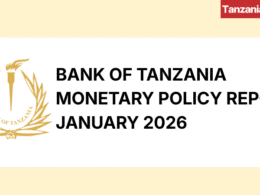The latest KPMG CEO Outlook 2024 report reveals that while East African CEOs, including those in Tanzania, remain cautious about the global economic landscape, they are optimistic about growth prospects within their industries.
This sentiment is driven by strategic investments in infrastructure and the increasing adoption of cutting-edge technologies like generative AI (Gen AI).
The report, which surveyed 50 CEOs from Kenya, Tanzania, Uganda, Rwanda, and Ethiopia, highlights that 76% of East African CEOs are confident in the growth of their respective industries.
However, confidence in their national economies has dropped to 60%, compared to 82% last year, amid concerns over economic uncertainty and geopolitical risks.
Generative AI Driving Innovation
One of the key trends emerging from the report is the prioritization of generative AI across industries. AI is viewed not only as a tool for operational efficiency but also for boosting innovation and promoting workforce skills diversity, with 42% of East African CEOs making AI a central investment focus.
Challenges Ahead: Cybersecurity and Talent Shortages
While CEOs are optimistic, they also identified key challenges that could affect organizational growth. These include supply chain disruptions, cybersecurity threats, and a shortage of skilled labor.
The rapid digital transformation across East Africa, including Tanzania, has heightened concerns over cybersecurity. Only 30% of East African CEOs feel well-prepared for potential cyberattacks, signaling a need for increased investment in cybersecurity solutions.
The ongoing shift in labor markets, driven by retiring employees and a lack of skilled workers to replace them, also poses a challenge. CEOs in Tanzania and the region at large are focusing on upskilling and reskilling their workforce to bridge this gap, particularly in the wake of AI-driven transformations.
ESG as a Growth Strategy
The report also emphasizes the growing importance of Environmental, Social, and Governance (ESG) initiatives among CEOs. In Tanzania and beyond, there is increasing pressure on businesses to align with global sustainability standards, including meeting net-zero targets.
However, only 22% of East African CEOs are confident in achieving their net-zero goals by 2030, with barriers including high costs, a lack of skilled expertise, and technological challenges.
About the Report
The KPMG CEO Outlook 2024 is an annual survey that captures the perspectives and strategies of over 1,300 CEOs globally, including 50 CEOs from East Africa. The report sheds light on the economic outlook, challenges, and opportunities that businesses in the region are facing, with a particular focus on AI, talent management, and ESG.











